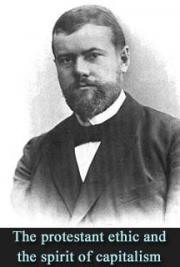The Protestant Ethic and the Spirit of Capitalism
- / Home
- / Sociology Books /

Book Description HTML
Weber's main intellectual concern was understanding the processes of rationalisation, secularization, and "disenchantment" that he associated with the rise of capitalism and modernity.[5] Weber argued that the most important difference among societies is not how people produce things but how people think about the world. In Weber’s view, modern society was the product of a new way of thinking.[6] Weber is perhaps best known for his thesis combining economic sociology and the sociology of religion, elaborated in his book The Protestant Ethic and the Spirit of Capitalism. Weber proposed that ascetic Protestantism was one of the major "elective affinities" associated with the rise of capitalism, bureaucracy and the rational-legal nation-state in the Western world. Against Marx's "historical...

